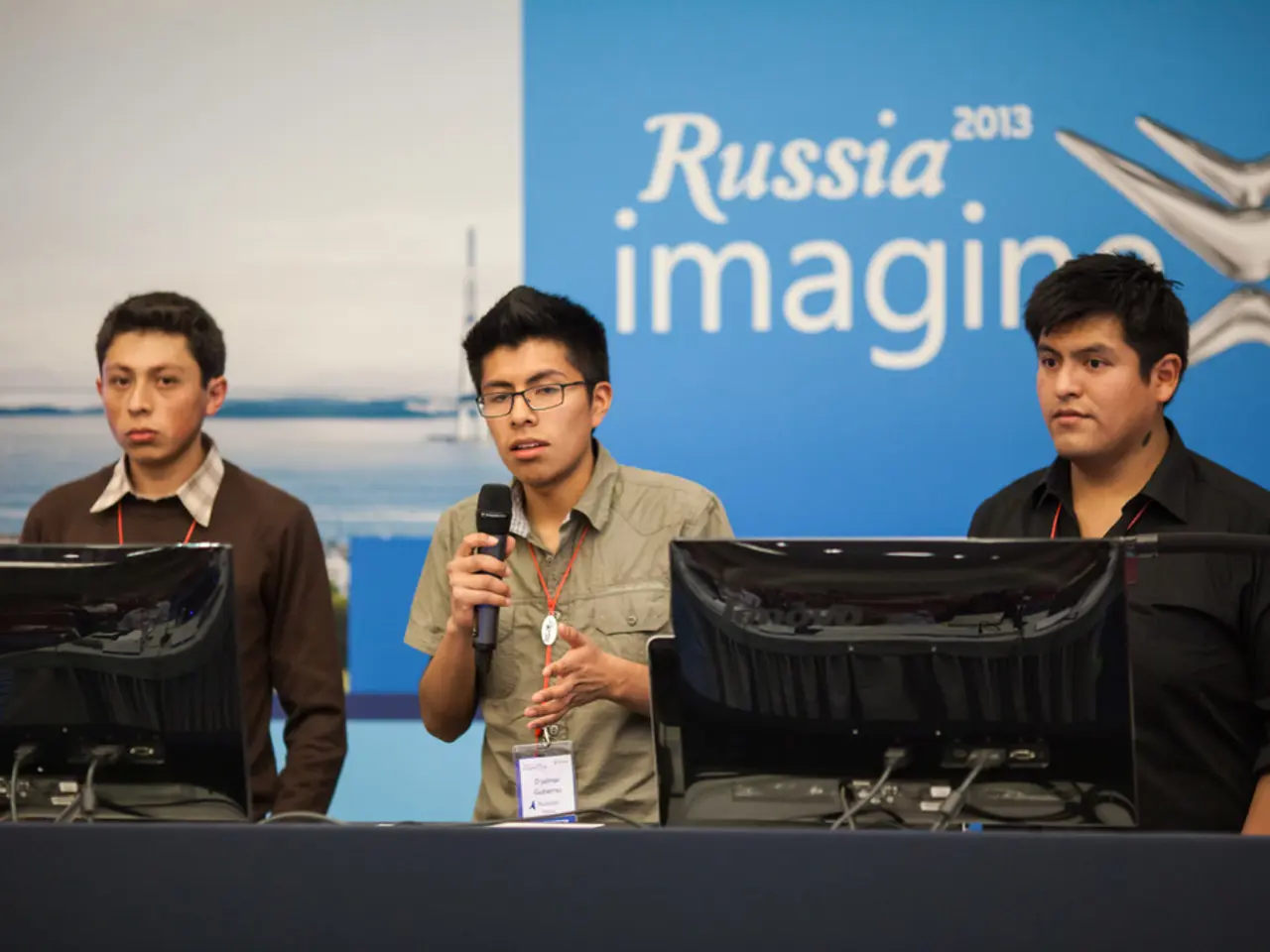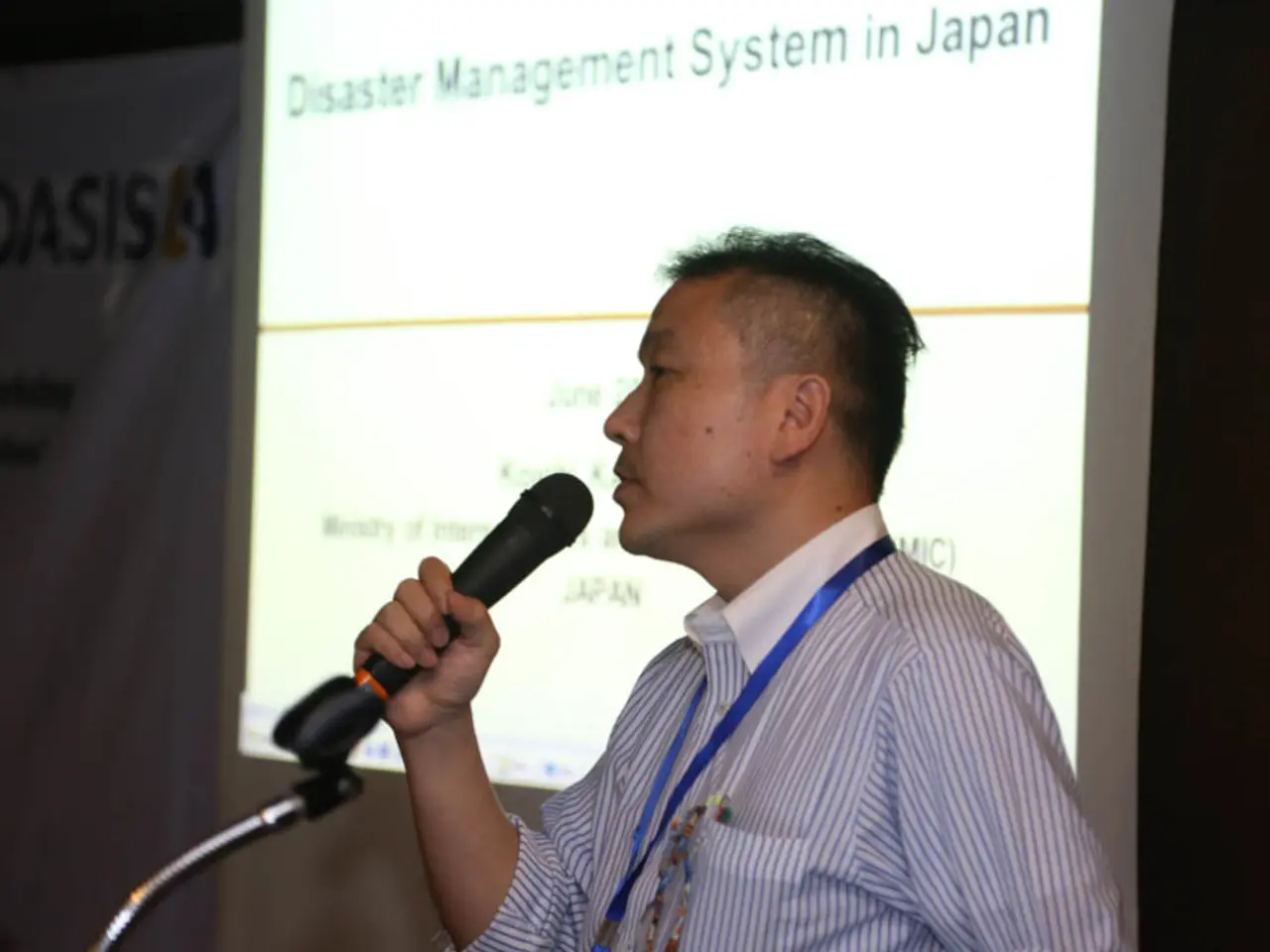EU-Kazakhstan trade expansion sees an impressive increase of approximately 18% in 2024
In a significant development, Roman Vassilenko, the Deputy Foreign Minister of Kazakhstan, recently hosted an overview briefing for the heads of EU diplomatic missions. The event, held on January 21, 2025, focused on strengthening economic cooperation and expanding transport connectivity in Central Asia and between the region and the EU.
The briefing came at a time when Kazakhstan and the European Union have been maintaining a robust economic, trade, and investment relationship. In the period from January to November 2024, the bilateral trade between the two entities reached approximately $49.7 billion, with Kazakhstan's exports to the EU totaling $34.6 billion. Imports from the EU to Kazakhstan amounted to $9.6 billion in the same period.
The trade turnover between Kazakhstan and the European Union increased by 17.7% compared to the same period in 2023, demonstrating the resilience of this relationship despite some logistical challenges due to sanctions against Russia. Notably, exports from Kazakhstan, particularly energy resources, have been a key driver of this trade.
Investments from Europe have also been substantial. Since 2005, European investments in Kazakhstan have reached $180 billion. This investment is particularly notable in the energy sector, with over $12 billion committed via the Global Gateway Investment Package. European investment is also significant in uranium exports to France, underscoring the energy sector cooperation between the two entities.
Vassilenko highlighted the EU visa regime for Kazakh citizens as a focus area during the briefing. He also emphasized the importance of effectively implementing agreements in trade and investment, transport and logistics, green energy, and critical raw materials.
The briefing also touched upon Kazakhstan's relations with other key players, including Russia, China, and the United States. However, further details about the content of the briefing or the attendees were not provided.
The photos from the briefing were credited to gov.kz, but the location of the event remains undisclosed. Despite these details, it is clear that Kazakhstan's economic diplomacy seeks to balance its relations with Western markets and Eastern powers, maintaining a multivector foreign policy. The EU remains Kazakhstan’s largest export destination, especially for energy, though Kazakhstan continues to engage strategically with multiple partners.
In conclusion, despite geopolitical complexities and sanctions-related logistical challenges in 2024, Kazakhstan-EU economic and investment relations remain strong and focused on diversification and infrastructure development, backed by substantial European investments and a shared interest in energy and transport connectivity.
- Given the robust economic relationship between Kazakhstan and the EU, the recent briefing hosted by Roman Vassilenko, focusing on strengthening economic cooperation and expanding transport connectivity, can be regarded as a political move to further general-news focus areas such as trade and investment agreements, green energy, and critical raw materials.
- The EU visa regime for Kazakh citizens, as highlighted during the briefing, is a significant issue in the political and general-news context, indicating a potential area for future collaboration and economic growth between Kazakhstan and the European Union.







